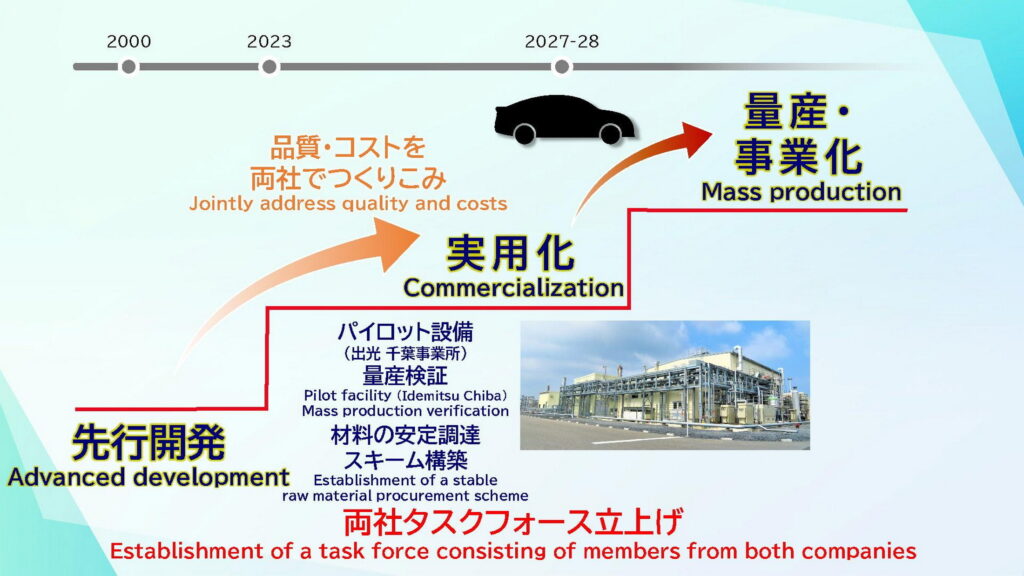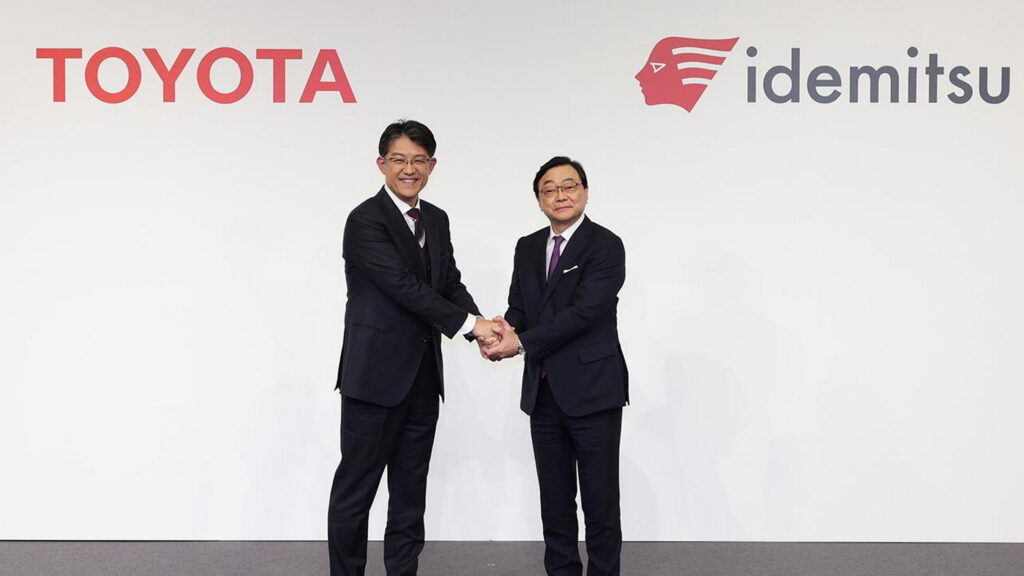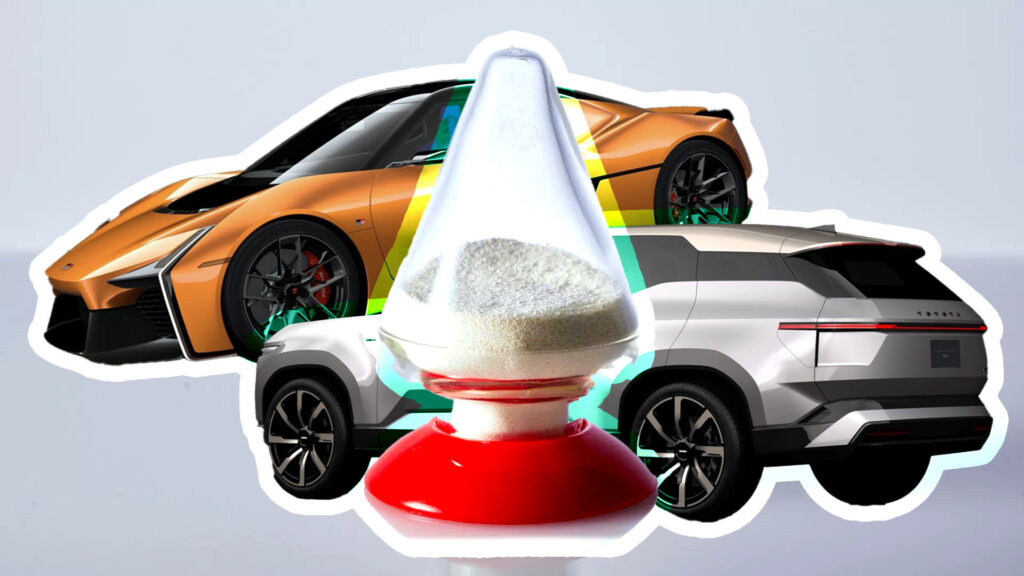The energy density gains made possible by solid-state batteries will allow Toyota to release vehicles with as much as 750 miles (+1,200 km) of range and lightning fast charging times. Better still, the first vehicle with this technology will arrive in just a couple of years, according to the latest update from Toyota officials.
This timeline seems to be ahead of Toyota’s and the oil refiner Idemitsu Kosan’s previous announcement from last year. They had planned to collaborate on the development and mass production of all-solid-state batteries, aiming for commercialization in 2027 and 2028, followed by full-scale production.
The development of solid state batteries promises to bring with it a generational shift in EV manufacturing, thanks to the technology’s superior energy density and safety. That means that a number of automakers are working to make them viable for mass production, including Toyota, which believes that if it can lead the charge, it can make up ground it lost to companies like Tesla and BYD in the EV segment.
Speaking at an investment summit in India, Vikram Gulati, the head of Toyota Kirloskar Motor, said that the automaker is just a couple of years away from getting solid-state batteries on the roads of the world.
Read: Toyota’s Solid-State Batteries Will Be Limited To ‘Tens Of Thousands’ Of Cars

“We will be rolling out our electric vehicles with solid-state batteries in a couple of years from now,” said Gulati, per Reuters. It “will be a vehicle which will be charging in 10 minutes, giving a range of 1,200 km (750 miles) and life expectancy will be very good.”
However, that may not necessarily mean that people will be driving an EV with a solid-state battery in the next few years. Even once it is on the road, the technology will take years to mature to a point where it is ready to be in the majority of EVs.
Toyota is working with Japanese oil producer Idemitsu Kosan to develop solid-state batteries. Upon announcing the partnership, the automaker laid out its roadmap for development, and although it expects to have the ability to commercialize the technology by 2027 or 2028, production will initially be limited to tens of thousands of vehicles.
Until then, the company plans to lean on its “prismatic cell” batteries, which help give its EVs longer ranges than before.





